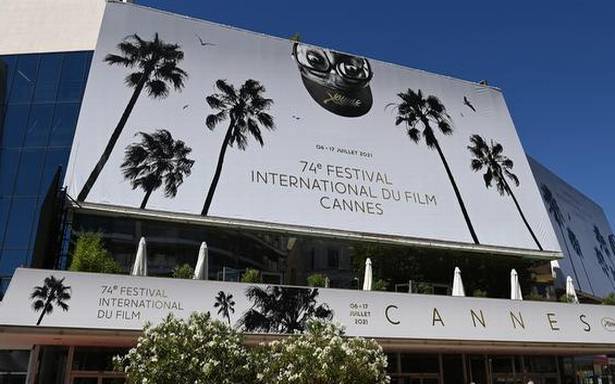It would also be a big relief for President Emmanuel Macron’s government, which flung open France’s doors to American and other foreign tourists just in time for the festival
Cannes is back.
The lights are in position, the stars en route to the French Riviera. And Spike Lee’s face is peering out onto the Croisette from a huge banner announcing Tuesday’s debut of the world’s premier film festival.
Also Read | Get ‘First Day First Show’, our weekly newsletter from the world of cinema, in your inbox. You can subscribe for free here
The show is running 14 months late, thanks to the pandemic. And it’s about time for the city’s merchants, hoteliers and restaurateurs, who hope the return of the festival’s glamour and revenues heralds a broader renaissance for the region and France’s cultural world after an exceptionally damaging year.
“We lost all of the international conventions, congress, large events like the film festival. So we lost millions,” Charles Richez, director of the Majestic Hotel, told The Associated Press. “We’re very happy now to have the film festival again. It’s the beginning of the return of all the international events.”
Cannes organizers are attempting the first full-scale film festival in the coronavirus era, despite worries about the delta variant which is spreading fast across Europe.
Virus infections in the Cannes area have been slightly lower than the national per capita average in recent weeks, and vaccinations are going slightly faster. But local officials have expressed concern that the opening up to foreigners puts tourist destinations like Cannes at new risk of outbreaks.
Masks are required at festival events, and attendees are required to test every 48 hours. But moviegoers can sit next to each other, and the festival has no virtual component.
Thierry Frémaux, artist director of the festival, addressed the press on the eve of opening day and described protocols that were evolving.
“We always said last year that if the festival was canceled, it was because the situation was more serious than the existence of a film festival also the biggest festival in the world,” said Fremaux. “And the situation, as you know, was serious. It is not over. The epidemic is not conquered. But this year, we will have to be careful — be reasonable and be very careful. ”
Visitors are trickling back to the city’s shoreline and families are frolicking on Cannes beaches as France’s summer vacation season kicks off this week. Tourists took selfies in front of the festival banner, unfurled Sunday and adorned with palm trees, seagulls and jury president Spike Lee’s trademark cap and glasses.
As workers give a final polish to the windows of the Palais de Festivals, there’s no sign that this temple of world cinema was lined with hospital beds early in the pandemic, or used as a “vaccinodrome” earlier this year.
But it’s still not quite a normal year. Cannes crowds are small so far, and restaurants have more empty tables. Some shopfronts remained boarded up.
A successful festival would be a boost for Cannes’ conservative mayor, who just won a re-election and earns outsized national attention for hosting the world’s cinema elite in his city of 75,000 that he calls a “global village.”
It would also be a big relief for President Emmanuel Macron’s government, which flung open France’s doors to American and other foreign tourists just in time for the Cannes festival, after repeated surges of the virus took more than 111,000 lives and hammered the economy and health care system.
With infections France starting to tick up again after weeks of decline, authorities are urging more people to get vaccinated to avert a summer lockdown.
For 12 days at Cannes, though, the virus will take a back seat to glamour, intrigue and drama onscreen and off. Leos Carax’s musical “Annette” opens the event Tuesday, followed by films by Wes Anderson, Sean Penn and filmmakers from around the world. Some were official selections last year for a festival that never happened.
“We just want to work,” said Enzo Comme, manager of a Cannes cafe called New. “We don’t want aid from the government … we just need to open, to work and then afterward, if it’s possible, we want to take off these masks.”
Source: Read Full Article

